Muzungu Price. What is it?
Many African businesses never seem to have a fixed price on their items so this can make it really hard to shop.
Prices always fluctuate based on the appearance of the person and even the color of that person’s skin who is purchasing a product. This is an experience that is felt by both locals and foreigners visiting the country. It is, however, more felt by foreigners, especially whites, who are locally referred to as ‘Muzungu’ or ‘Mzungu’ in countries like Tanzania, Uganda, and Kenya where Kiswahili is spoken.
This article is NOT in any way a slur on Africa or intended to be racist, but as someone said to me, it is in fact ‘reverse racism’, but clearly there is no such thing!
At times I am amazed because traders over there will want to sell you a second-hand item at the price higher than the cost of a brand new item. This is the Muzungu price.
Most of them fail to understand that honesty is the only tool they can use to build successful businesses and that frustration often causes the potential buyer to walk away leaving them without a sale.
Trying to exploit a potential customer not only drives that person away, but prevents them from telling their family, neighbors, and friends, and they most likely will never buy from that trader again.
In such a case, it is a loss to the business since it attracts customers who it sadly cannot keep.
I’ve been in a shop looking at an item I am interested in, and the store owner takes it from my hand and replaces it with a bigger item that is more expensive, and that he wants to generate a greater sale on. The trouble is I didn’t want the bigger item, and after he does this two or three times, I am frustrated and I leave. Had he see what I wanted to buy and offered a fair price, I may have bought 3 or 4 as I wanted them for gifts, but instead, I left empty-handed, and he was also left without a sale.
At other times, the Muzungu price has been so crazy I just laugh. I remember walking past a ‘fair trading’ site, and the stall holder at this beachside shack tried to sell me something for $80. I ended up buying the same style of the item from another local seller for $3.
Based on my experience, I have come up with a list of businesses that are likely to exploit you when you visit Kenya, Tanzania or many other African countries.
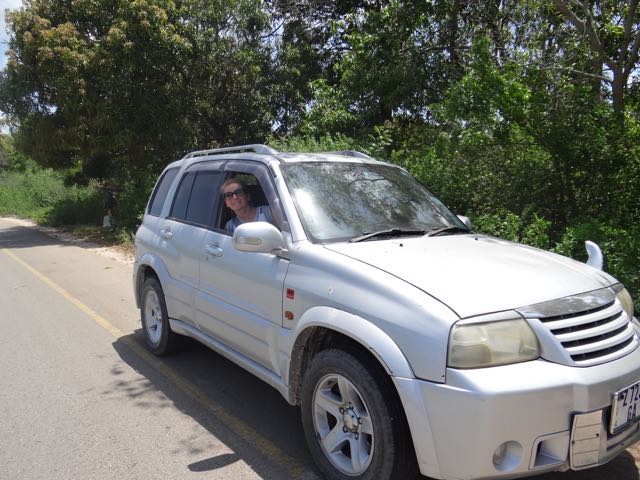
Hire Companies
I will be honest and say that I have not had any issue dealing with car rental companies that I successfully rented from since they were always professional in their dealings. But I did contact many who started out at a crazy Muzungu price. So high, in fact, I simply hung up the phone, and I could not bother with the haggling banter that I knew was waiting for me.
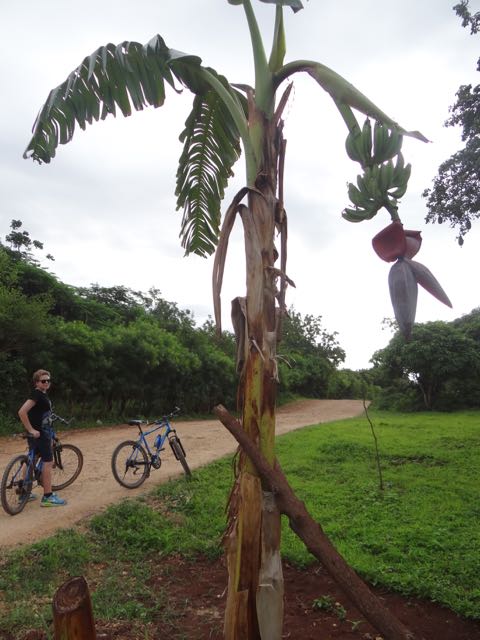
I have once tried dealing with a bicycle rental business and this is where I had an experience with ‘Muzungu Price.’ I approached the business since I needed to hire two bikes for a month. Realizing that I am not Kenyan, the businessman tried using every trick to corner me into accepting to get the bicycles at a price that was way too high. In fact, from my calculation, the price was too high that I would be able to purchase two new bicycles if I saved the money for a month. I could then give those bikes to a person in need after we finished using them.
Of course, I did not accept his crazy Muzungu price, and he lost out on the deal. The business lost money in the low season when no-one was renting bikes and we would have paid fairly but he was unrealistic in his pricing. This money would have probably helped him in so many ways if he never had a ‘Muzungu price’ mentality.

National Parks and Tourist Destinations
Can you imagine how we felt in Uganda when we visited the Source of the Nile and an entry sign clearly charged more for everyone else in the world except the locals? From memory, it said ‘price XXX for Rest of the World’.

Public Service Vehicles
There are cases of tourists being forced to pay more when they board public service vehicles. Touts have a misconception that most tourists do not know the exact cost of traveling from one point to another. This mostly happens when you are traveling over short distances. To avoid this, you might want to confirm fare prices before boarding any public service vehicle in the country. You might also want to ensure that you give out the exact amount of money since these touts are likely to exploit you if you give out an amount that requires them to give back change.
I personally love using tuk-tuks (three-wheeled passenger vehicles) since they are more reliable and I get to deal with one person when going over short distances.
However, taxi drivers are also notorious for using the Muzungu price system, and it is well worth reading an article we wrote regarding taxi scams alone.
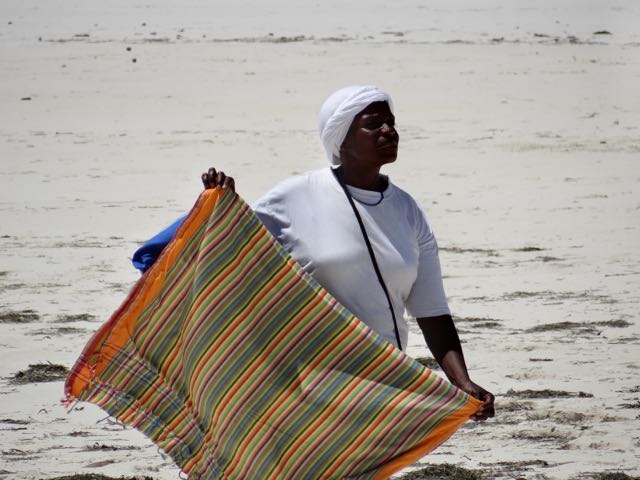
Souvenir Sellers
While in Kenya, I always feel the urge to purchase locally made souvenir items since they are always unique and allow me to remember my Kenyan experience when I travel out of the country. I have to admit that the locals have gifted hands.
They have the best locally made jewelry, crafted artworks, and knitted attires. We even made a list of all the items unique to East Africa you should look to purchase and you can read that here.
Some of them, however, have a crazy Muzungu price on these items.
There are times I am told the price on an item and immediately I know that it is a ‘Muzungu price’. I, therefore, have to leave and look for a fair deal or stand there and bargain until the price is reduced. This is definitely another business you want to be cautious when interacting with.
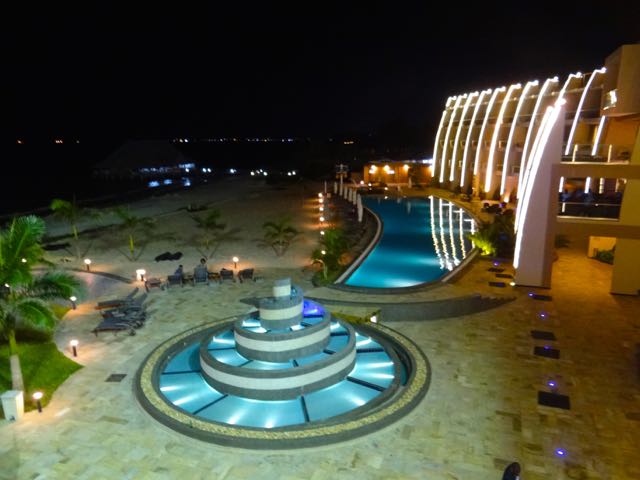
Hotel Industry
Some frequent travelers have had instances when they checked into hotels that never offered value for money services earlier promised. They ended up paying so much for less appealing services.
Some hotels are not in the convenient locations they purport to be, neither are they as spacious and neat as is shown on the websites. They, however, know that once you make your payments, you will have to stay in them. This is likely to happen if you fail to do your research. I have actually once been shortchanged and placed in a Booking.com accommodation that was cheaper than what I paid for during my journey around the world. The owner showed one lot of photos which was, in fact, a completely different rental, and then right at the end of his advert, he put the ‘real’ apartment – a scuzzy old unrenovated place. He scammed us and the booking site refused to assist, and as a consequence, we will never use that site again, nor ever recommend them to our readers. They failed to insist that the owner advertise honestly, so I don’t want to risk being cheated again, nor would I ever want that to occur to my family and friends.
I know how easy it is for a foreigner to be shortchanged by the management of a hotel without her really knowing too. This is a worldwide issue but I will list it here since it is more likely to happen to a ‘white tourist’ who looks loaded with cash but clueless about local prices of hotel rooms.
One of the worst cases we saw was for a hotel in Kenya in the coastal area of Diani Beach. It was listed as ‘ideal for honeymooners’, and ‘walk to the beach’. When we arrived there were mold, filth, broken items and more plus it was about 1 km walk from a beach you could not even swim at! It was owned by local Kenyans. We refused to stay. We were out of pocket for the taxi and then having to find new accommodation. In this case, the Muzungu price was trying to pass off a horrid place as though it were a palace – definitely ripping off the unsuspecting customer.
This is why we as luxury travel experts take our recommendations to you seriously. We love to share the good places we find. Place you might enjoy having your family vacation at.
I had another room service lady give me the biggest ‘puppy dog eyes’ as she hung her head and told me the sob story about her family and how she had no work that next week. We later went shopping in a big mall and there she was all ‘dolled up’ shopping happily with her friend. In fact, she was wearing better clothes than I had! I also tipped the receptionist (quite mightily I might add – it was more of a gift of money) at the same hotel and later found he OWNED the taxi that he arranged for us. The same taxi that ripped us off and was charging us double the fare should be.
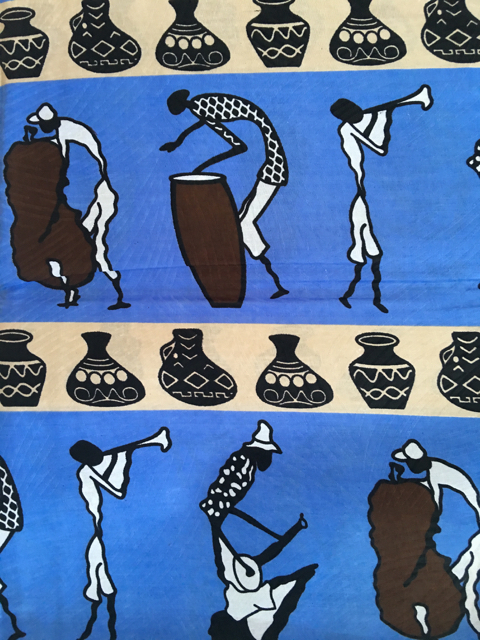
Hair and Beauty Businesses
If you are in Africa for a long time, you will have to visit a hairdresser or beauty shop once in a while. Maybe you want to do your hair, have a massage, get a manicure or pedicure.
It might be wise to go to a professionally run beauty shop since they always have their fixed prices listed down, with strict procedures of how to handle clients. The other beauty shops might look affordable but will never give you value for money. In fact, the low price charged might actually be expensive for services rendered in such a place.
My son needed a haircut and so in the tourist area we walked in and were quoted $25. Where we were staying our neighbor’s son gets a haircut at the same shop for $7. We left and walked down the street and told the lady we were staying long term locally and the price then dropped to $7 – no Muzungu price.
Most of the business owners will have in fact formed a price within their minds by simply looking at the color of your skin as you walk in through the main entrance.
Muzungu price is very real. It can frustrate you immensely. But recognize that haggling is their way of life. They want a price that is good for them but rarely worries if it is good for you too.
So don’t be afraid to speak up. Name your price you think is fair and walk away. If they want the sale, they will pursue you.
Try to be patient, polite and spend 5 minutes possibly educating them on how they should treat the tourist. Your time and wisdom might actually help them to finally make a sale and teach them a skill they are yet to learn – fairness.
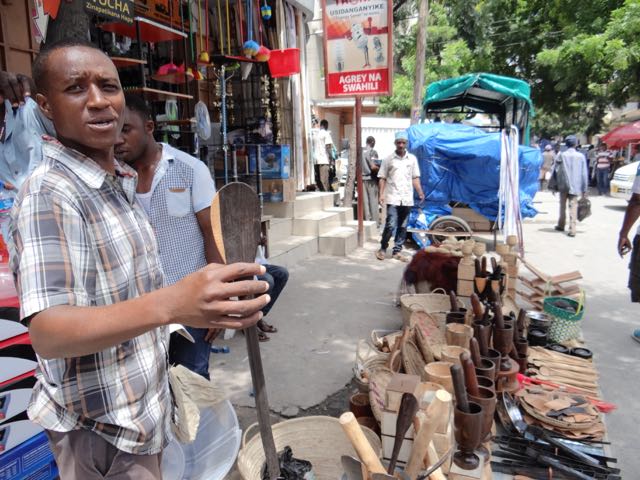
Questions and Comments
- Have you ever felt like you were forced to pay more for an item that cost less, just because you were a ‘Muzungu’?
- Please share your experience below if you have ever paid Muzungu prices.
Thinking of a trip to Africa?
For Africa special travel deals
CLICK HERE

